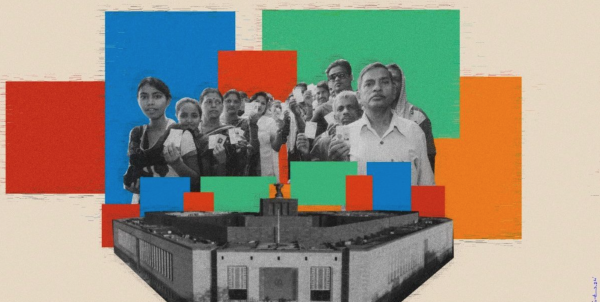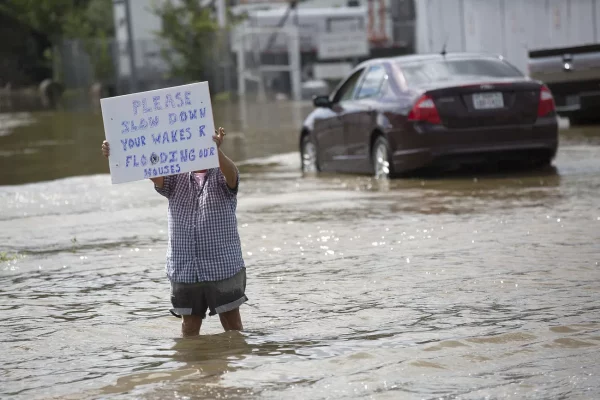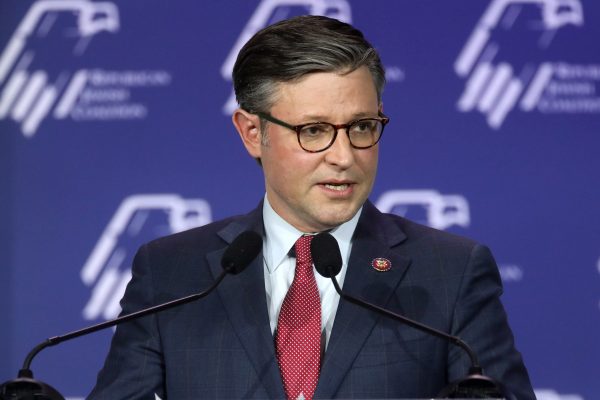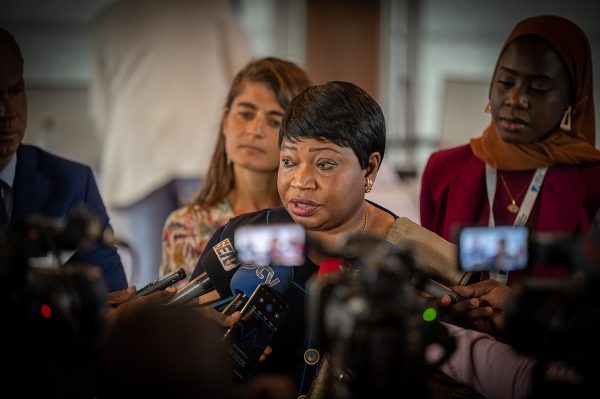American oligarchs are joining Trump and his faux working-class MAGA movement

Elon Musk and entrepreneur and investor David Sacks reportedly held a secret billionaire dinner party in Hollywood last month. Its purpose: to defeat Joe Biden and reinstall Donald Trump in the White House. The guest list included Peter Thiel, Rupert Murdoch, Michael Milken, Travis Kalanick, and Steven Mnuchin, Trump’s Treasury secretary.
Meanwhile, Musk is turning up the volume and frequency of his anti-Biden harangues on his X platform.

Since January, Musk has posted about Biden at least seven times a month, attacking the president for everything from his age to his policies on immigration and health. Last month, Musk posted on X that Biden “obviously barely knows what’s going on” and that “He is just a tragic front for a far left political machine.”
So far this year, Musk has posted more than 20 times in favor of Trump, arguing that he’s a victim of media and prosecutorial bias in the criminal cases that Trump faces.
This is no small matter. Musk has 184 million followers on X. And because he owns the platform, he’s able to manipulate the algorithm to maximize the number of people who see his posts.
No other leader of a social media firm has been as willing to tip the political scales toward authoritarian leaders around the world — not just toward Trump but also toward Javier Milei, the president of Argentina; Jair Bolsonaro of Brazil; and Narendra Modi of India.
Some of this helps Musk’s business interests. In India, he has secured lower import tariffs for Tesla vehicles. In Brazil, he has opened a major new market for Starlink, SpaceX’s satellite internet service. In Argentina, he has solidified access to lithium, the mineral most crucial to Tesla’s batteries.
Musk has slammed Biden for his decisions on electric vehicle promotion and subsidies, most of which have favored unionized U.S. auto manufacturers. Musk and his Tesla are viciously anti-union.
But something deeper is going on. Musk, Thiel, Murdoch, and their cronies are backing a movement against democracy.
Peter Thiel, the billionaire tech financier, has written, “I no longer believe that freedom and democracy are compatible.”

Hello? If freedom is not compatible with democracy, what is it compatible with?
Thiel donated $15 million to the successful Republican Ohio senatorial campaign of J.D. Vance, who alleged that the 2020 election was stolen and that Biden’s immigration policy meant “more Democrat voters pouring into this country.” (Vance is now high on the list of Trump vice presidential possibilities.)
Thiel also donated at least $10 million to the Arizona Republican primary race of Blake Masters, who also claimed Trump won the 2020 election and admires Lee Kuan Yew, the authoritarian founder of modern Singapore.
Billionaire money is now gushing into the 2024 election. Just 50 families have already injected more than $600 million into the 2024 election cycle, according to a new report from Americans for Tax Fairness. Most of it is going to the Trump Republican Party.
Stephen A. Schwarzman, the billionaire chairman and chief executive of the Blackstone Group — who had called the January 6 attack on the U.S. Capitol an “insurrection” and “an affront to the democratic values we hold dear” — is backing Trump because he believes “our economic, immigration and foreign policies are taking the country in the wrong direction.”
Trump recently solicited a group of top oil executives to raise $1 billion for his campaign, promising that if elected he would “immediately” reverse dozens of environmental rules and green energy policies adopted by President Biden. According to The Washington Post, Trump said this would be a “deal” for them “because of the taxation and regulation they would avoid thanks to him.”
Speaking from the World Economic Forum’s confab last January in Davos, Switzerland, Jamie Dimon — chair and CEO of JPMorgan Chase, the largest and most profitable bank in the United States, and one of the most influential CEOs in the world — heaped praise on Trump’s policies while president. “Take a step back, be honest,” Dimon said. Trump “grew the economy quite well. Tax reform worked.”
Rubbish. Under Trump the economy lost 2.9 million jobs. Even before the pandemic, job growth under Trump was slower than it’s been under Biden.
Most of the benefits of Trump’s tax cut went to big corporations like JPMorgan Chase and wealthy individuals like Dimon, while the costs blew a giant hole in the budget deficit. If not for those Trump tax cuts, along with the Bush tax cuts and their extensions, the ratio of the federal debt to the national economy would now be declining.
Clearly, some of the increasing flow of billionaire money to Trump and his Republican Party is motivated by the prospect of additional tax cuts and regulatory rollbacks under Trump.
But not all. A larger goal of these American oligarchs is to roll back democracy.
When asked if he was becoming more political, Musk admitted (in a podcast in November), “if you consider fighting the woke mind virus, which I consider to be a civilizational threat, to be political, then yes. Woke mind virus is communism rebranded.”
Communism rebranded?
A former generation of wealthy American conservatives backed candidates like Barry Goldwater because they wanted to conserve American institutions.
Musk, Thiel, Murdoch, and other billionaires now backing the anti-democracy movement don’t want to conserve much of anything — at least not anything that occurred after the 1920s, including Social Security, civil rights, and even women’s right to vote. As Thiel wrote:
“The 1920s were the last decade in American history during which one could be genuinely optimistic about politics. Since 1920, the vast increase in welfare beneficiaries and the extension of the franchise to women — two constituencies that are notoriously tough for libertarians — have rendered the notion of ‘capitalist democracy’ into an oxymoron.”
If “capitalist democracy” is becoming an oxymoron, it’s not because of public assistance or because women got the right to vote. It’s because billionaire capitalists like Musk and Thiel are intent on killing democracy by supporting Trump and the neofascists surrounding him.
Not incidentally, the 1920s marked the last gasp of the Gilded Age, when America’s robber barons ripped off so much of the nation’s wealth that the rest of America had to go deep into debt both to maintain their standard of living and to maintain overall demand for the goods and services the nation produced.
When that debt bubble burst in 1929, we got the Great Depression. Benito Mussolini and Adolf Hitler then emerged to create the worst threats to freedom and democracy the modern world had ever witnessed.
If America learned anything from the first Gilded Age and the fascism that grew like a cancer in the 1930s, it should have been that gross inequalities of income and wealth fuel gross inequalities of political power — as Musk, Thiel, and other billionaires are now putting on full display. Inequalities of power in turn generate strongmen who destroy both democracy and freedom.
Under fascist strongmen, no one is safe — not even oligarchs.
If we want to guard what’s left of our freedom, we must meet the anti-democracy movement head on with a bold pro-democracy movement that protects the institutions of self-government from oligarchs like Musk and Thiel and neofascists like Trump.
Robert Reich is an American professor, author, lawyer, and political commentator. He worked in the administrations of Presidents Gerald Ford and Jimmy Carter, and served as Secretary of Labor from 1993 to 1997 in the cabinet of President Bill Clinton. He was also a member of President Barack Obama's economic transition advisory board. Reich has been the Chancellor's Professor of Public Policy at the Goldman School of Public Policy at UC Berkeley since January 2006. He was formerly a lecturer at Harvard University's John F. Kennedy School of Government and a professor of social and economic policy at the Heller School for Social Policy and Management of Brandeis University.






